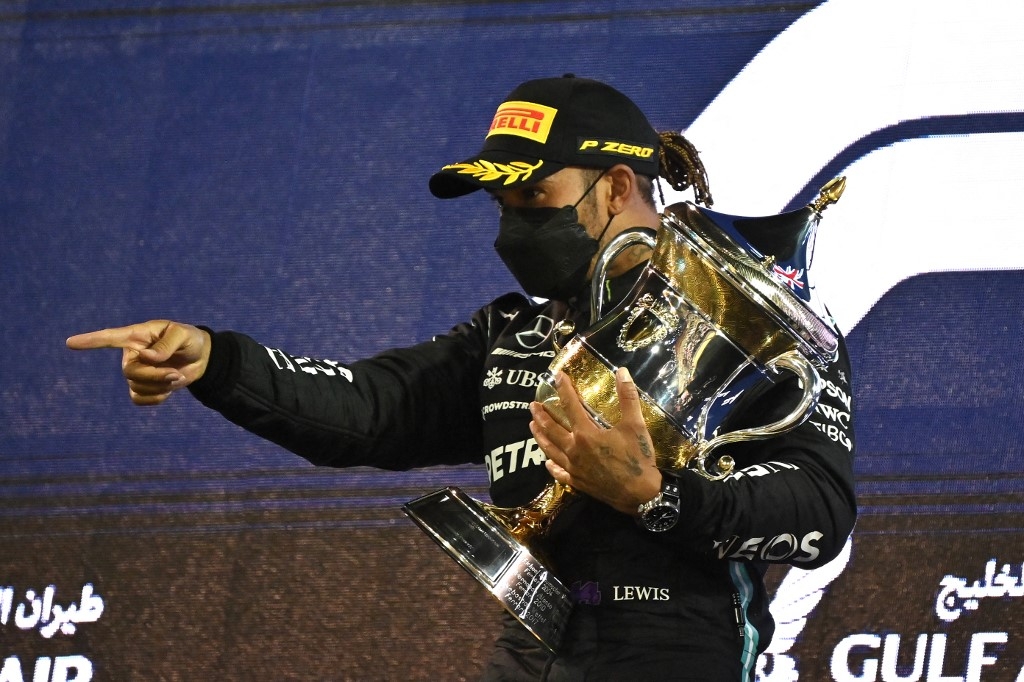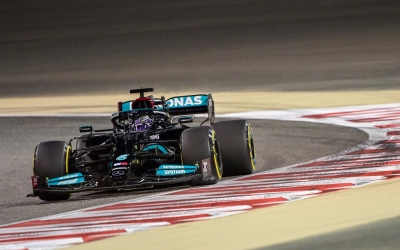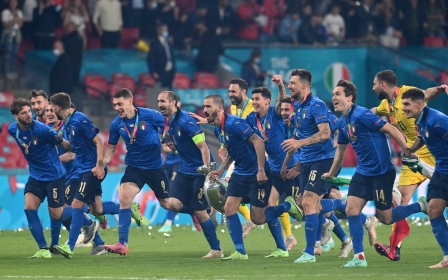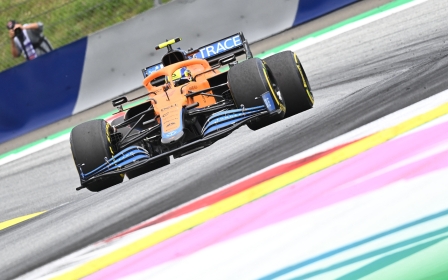Saudi Arabia's F1 chief open to meeting Lewis Hamilton to allay rights concerns

The head of the Saudi Arabian Grand Prix has agreed to sit down with one of Formula One's top drivers to address human rights concerns, as the country prepares for its first Grand Prix race in December.
Prince Khalid Bin Sultan Al Faisal, chairman of the Saudi Automobile and Motorcycle Federation, said he would be happy to meet with Lewis Hamilton, a seven-time world champion in the sport, to allay concerns over Riyadh's human rights record.
"I met with a couple of drivers at Silverstone - and Lewis Hamilton was not one of them - and addressed their concerns," the Prince told reporters on Monday.
"I spoke with them openly and I said, 'listen, I am not going to say anything. You come to Saudi Arabia and you see it. If you want to come before the race you can judge by yourself and meet with the local people and you can have your opinions.'
"We are confident about our progress [on human rights] and where we are going so we have no issues. It is very important to us, not just Formula One, but our Kingdom and the people who live in Saudi Arabia."
Formula One (F1) and Saudi Arabia recently struck a 10-year deal, which will see the country host its first Grand Prix in Jeddah on 5 December.
But campaigners and athletes have voiced concerns over F1's decision to hold races in places such as Saudi Arabia; China; Russia; Azerbaijan; Bahrain; and the United Arab Emirates.
Last year, Hamilton called out the sport's organisers saying: "The human rights issue in so many of the places that we go to is a consistent and a massive problem."
Hamilton's comments came after it was announced that the 2021 season-opening Grand Prix would take place in Bahrain.
At the time, Hamilton, who is the first and only Black driver to race in F1, had just met with Bahraini officials as well as the country's British ambassador, concerning Mohammed Ramadhan, a member of the country's Shia community who was arrested and put on death row in the wake of 2011 anti-government protests.
"This year has shown how important it is not only for us as a sport, but for all the sports around the world, to utilise their platforms to push for change," he said, referring to the difficulties of the Covid-19 pandemic as well as the 2020 racial unrest in the United States.
Sportswashing
Saudi Arabia has been working tirelessly on improving its international image, with sports - along with music, art and other entertainment - being one avenue the country has taken to do so.
Earlier this month it was reported that the kingdom's Public Investment Fund (PIF) and global investment firm Ares Management were in advanced talks to take a $550m stake in Britain's McLaren Group, Hamilton's former team.
Golf, tennis, horse racing and boxing are just some of the major sports that have seen events staged in the kingdom, leading rights campaigners to accuse Saudi Arabia of trying to "sportswash" its human rights record.
In March, a report by Grant Liberty said that Saudi Arabia had spent at least $1.5bn on such events in a bid to bolster its reputation.
At the same time, rights group say allowing the kingdom to be so involved in world sports helps its rulers normalise their behaviour by shifting attention away from Riyadh's well-documented human rights violations, including its crackdown on internal dissent and its leading role in the war in Yemen.
Groups such as Amnesty International and Human Rights Watch (HRW) have warned that crackdowns on freedom of speech, association and assembly have intensified during the past year, highlighting arrests and harassment of critics in the country.
"If Formula One is serious about its human rights policies, its new deal for a Grand Prix race in Saudi Arabia should be accompanied by meaningful pressure to release the Saudi women's rights defenders who campaigned for women to be allowed to drive," HRW's executive director, Kenneth Roth, tweeted in November.
Middle East Eye delivers independent and unrivalled coverage and analysis of the Middle East, North Africa and beyond. To learn more about republishing this content and the associated fees, please fill out this form. More about MEE can be found here.





